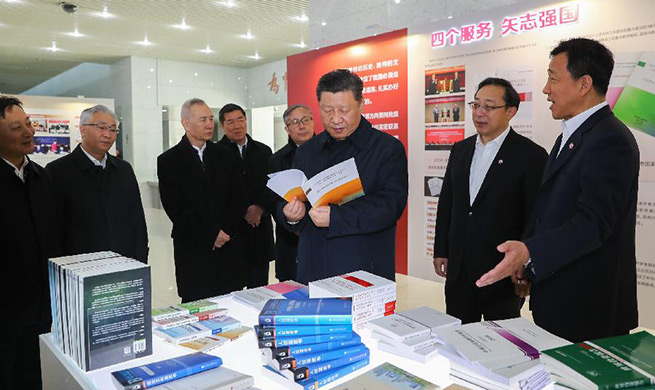SYDNEY, Jan. 18 (Xinhua) -- A team of Australian scientists have made breakthrough to manage the most common viral infection associated with organ and bone marrow transplants, following groundbreaking research which was published on Friday.
Researchers from Western Australia's Lions Eye Institute along with investigators from Queensland medical research institute QIMR Berghofer, established a cross country collaboration with the potential to dramatically reduce risk to transplant patients.
Their method, which has so far proved successful in mice, helps to combat infection caused by the reactivation of cytomegalovirus (CMV), a virus which exists and remains dormant in 80 percent of all people.
The CMV will reactivate in up to two thirds of patients post-transplantation, and up to 10 percent of those will develop life-threatening end-organ virally-mediated disease.
The team discovered that by injecting mice with their own antiviral antibodies, they can stop the CMV reactivation from happening, a result which they believe will transfer to human subjects.
"Together we created a novel model of CMV reactivation in the mouse which we used to dissect the components of the immune system required to keep CMV from reactivating and causing disease," Lions Eye Institute head of experimental immunology Professor Mariapia Degli-Esposti said.
"We have found that protection from reactivation is achievable using passively acquired antibodies."
Degli-Esposti said she hopes this simple but effective strategy can help take some of the risk and cost out of life saving transplant operations.

















